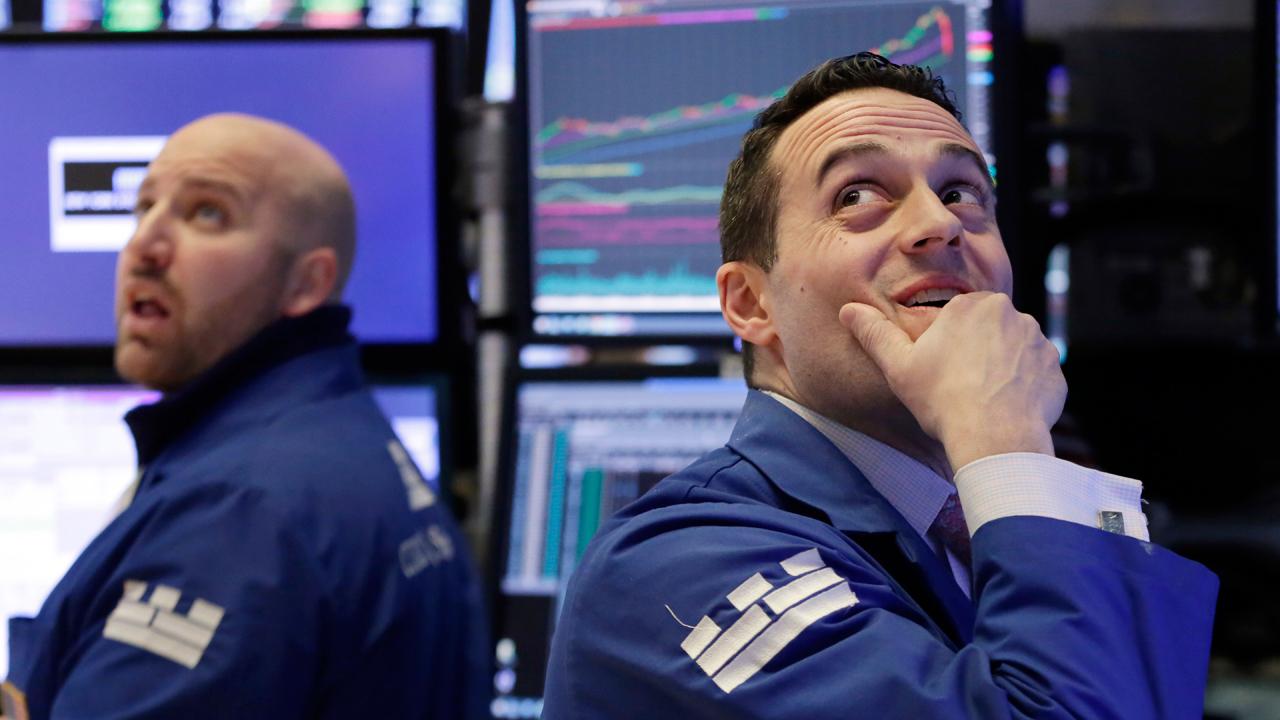Stocks close lower, along with bond yields, after Trump trade comments
Stocks gave back early gains to close lower on Tuesday while U.S. Treasury yields fell as investors anticipate slowing global economic growth given the trade war with China.
Both the U.S. and China raised tariffs on billions of dollars worth of each other’s goods earlier this month and the rising tensions have pushed the benchmark S&P 500 index down more than 4 percent so far in in May.
Ten-year U.S. Treasury yields fell to 2.26 percent, their lowest levels since October 2017, after President Donald Trump on Monday said during a visit to Japan that the U.S. was "not ready" to reach a trade deal with China. U.S. tariffs on goods from China “could go up very, very substantially, very easily,” Trump added.
Morgan Stanley economists said U.S. economic growth will be undermined, forcing the Federal Reserve to lower interest rates, if the trade war is not settled soon. “If talks stall, no deal is agreed upon and the US imposes 25 percent tariffs on the remaining $300 billion of imports from China, we see the global economy heading towards recession,” the bank said in a research note.
Similarly, JPMorgan CEO Jamie Dimon on Tuesday voiced concern about the consequences of an ongoing trade war. “Trade has gone from being a skirmish to being far more important than that,” Dimon said during Deutsche Bank’s Financial Services Conference in New York. “If this goes south in a bad way, and you have other surprises, that could be part of the thing that changes confidence, changes peoples’ willingness to invest,” he said.
| Ticker | Security | Last | Change | Change % |
|---|---|---|---|---|
| I:DJI | DOW JONES AVERAGES | 38884.26 | +31.99 | +0.08% |
| SP500 | S&P 500 | 5187.7 | +6.96 | +0.13% |
| I:COMP | NASDAQ COMPOSITE INDEX | 16332.555296 | -16.69 | -0.10% |
The fall in bank shares, as bond yields fell, weighed on the indexes on Tuesday. Goldman Sachs, Citigroup, J.P. Morgan Chase, Morgan Stanley and Wells Fargo all slipped.
Semiconductor stocks also fell, with the threat to global supply lines from the trade war burdening the chipmakers prospects. Intel and Micron Technology lower, as did Caterpillar, another bellwether for global economic growth.
Apple's exposure to the effects of the trade war remains a concern for analysts also since Apple gets 20 percent of its revenue from China and manufactures its iPhones there. Citigroup cut its forecasts for iPhone unit sales and earnings per share on Monday. "We believe the US/China trade situation will result in a slowdown of Apple iPhone demand in China as China residents shift their purchasing preference to China national brands," the bank said.
In deal news, Fiat Chrysler on Monday proposed a merger with France's Renault to create the world's third-biggest automaker worth $40 billion. The merged group could combine forces in the race to make electric and autonomous vehicles. The merged company would reshape the global industry and would produce some 8.7 million vehicles a year, leapfrogging General Motors and trailing only Volkswagen and Toyota. Shares of both companies rose.
| Ticker | Security | Last | Change | Change % |
|---|---|---|---|---|
| JPM | JPMORGAN CHASE & CO. | 191.77 | -0.19 | -0.10% |
| AAPL | APPLE INC. | 182.40 | +0.69 | +0.38% |
| INTC | INTEL CORP. | 30.68 | -0.29 | -0.94% |
| CAT | CATERPILLAR INC. | 344.86 | +2.71 | +0.79% |
| FCAU | n.a. | n.a. | n.a. | n.a. |
In economic news, U.S. home prices rose at the slowest annual pace since August 2012 in the year ended March, according to the S&P CoreLogic Case-Shiller Index published Tuesday, but the Conference Board said its consumer confidence index improved in May, rising to 134.1 from April's figure of 129.2.
In commodities markets, after losing 6.8 percent last week to a two month low of $57.91, crude oil prices edged up while gold slipped as the U.S. dollar firmed against major currencies. U.S. benchmark West Texas Intermediate crude for July delivery on the New York Mercantile Exchange was up 0.09 percent at $59.14 a barrel
Iranian oil exports have fallen due to U.S. sanctions but demand data has been weak with the strength of the U.S. dollar making imports in other currencies more expensive.
CLICK HERE TO GET THE FOX BUSINESS APP
